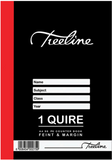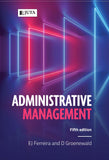
Practical Insights for Fraud Professionals: Lifting the Veil on the Dark Art (2019),1st Edition
It reads like on-the-job training and provides sound practical guidelines on how to conduct all elements associated with fraud investigation. Both new and seasoned fraud investigators will find value in these applied techniques.
| e-book ISBN: | 9781485120308 |
| Publisher: | Juta Publishers |
| Variant: | Printed |
| Author(s): | Bristow, C |
| Edition: | 1st Edition |
Content
- Legal practitioners
- Institutes (IAC, SAICA, SAIT, SAIPA, IIA, ISACA, ACFE)
- Universities and graduate schools (finance, public administration, accounting and audit departments)
- Audit firms (forensic departments)
- Public sector (auditor and accountant general, treasury, finance departments, SALGA, CIGFARO, SAPS, NPA etc)
- Organisations like Corruption Watch and National Anti-Corruption Forum
- Private sector/corporates (banking, finance, health & healthcare, insurance, mining, retail, motor industry, production, all sectors)
- Training providers
- NGOs and aid organizations, public sector, police and universities in Africa
We Also Recommend





